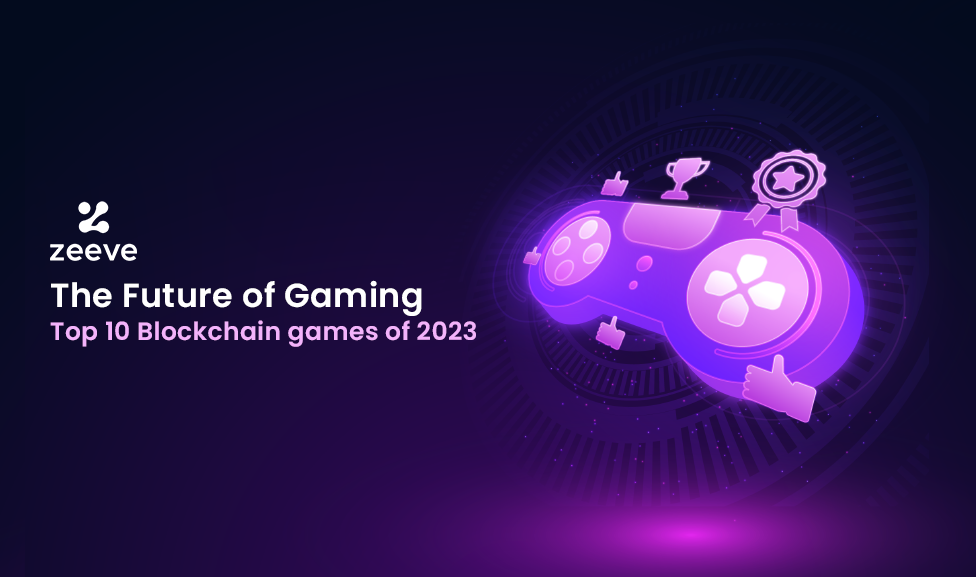CCCam HD Insights
Stay updated with the latest in streaming and tech.
Level Up Your Play: The Rise of Blockchain Based Gaming
Discover the future of gaming! Dive into how blockchain is transforming play, ownership, and earning in this thrilling revolution.
Understanding Blockchain Gaming: How It Works and Why It Matters
Understanding Blockchain Gaming refers to a transformative approach in the gaming industry that integrates decentralized technologies to create new gaming experiences. At its core, blockchain gaming utilizes a distributed ledger system that records all transactions, gameplay, and digital asset ownership, ensuring transparency and security. Players can truly own their in-game assets as non-fungible tokens (NFTs), allowing for the buying, selling, and trading of unique items across various platforms. This shift not only enhances player engagement but also offers a new economic model where gamers can earn real-world value from their time and effort invested in gameplay.
The significance of blockchain gaming extends beyond just ownership and economics; it also fosters a sense of community and trust among players. With traditional games, players are often subject to the policies of centralized companies that can change rules or reset progress at will. However, in blockchain gaming, smart contracts govern the rules, ensuring that gameplay is uninterrupted and assets remain secure. As the gaming industry continues to evolve, understanding blockchain gaming becomes crucial for developers and players alike, paving the way for a decentralized future that prioritizes player autonomy and innovative digital interactions.

Counter-Strike is a popular team-based first-person shooter (FPS) game that pits terrorists against counter-terrorists in a variety of scenarios. Players can utilize teamwork and strategy to outmaneuver their opponents, making each match a unique and engaging experience. If you're looking for a way to boost your gaming experience, check out our rollbit promo code to enhance your gameplay.
Top 5 Benefits of Blockchain Technology in Gaming
Blockchain technology is revolutionizing the gaming industry by providing unique solutions that enhance both player experience and game development. One of the key benefits is the decentralization of gaming assets. Players can truly own their in-game items, thanks to the ability to tokenize assets on the blockchain. This means that rather than being tied to a specific game or platform, digital items can be transferred, sold, or traded freely on various platforms, increasing their value and longevity.
Additionally, blockchain enhances security and transparency in gaming transactions. With traditional in-game transactions, players often face issues related to fraud or hacking. However, blockchain’s immutable ledger ensures that transactions are secure and easily verifiable, giving players peace of mind. Furthermore, it introduces smart contracts, which automate rules and transactions, allowing for more dynamic and trustworthy gameplay mechanics. As the gaming landscape continues to evolve, the integration of blockchain technology promises to reshape the industry for the better.
Is Blockchain Gaming the Future? Insights and Predictions
The rise of blockchain gaming has sparked considerable debate among industry experts and gamers alike. As the intersection of gaming and blockchain technology continues to evolve, many are asking: Is blockchain gaming the future? One of the primary advantages of blockchain gaming is its ability to empower players through true ownership of in-game assets. Unlike traditional games where items are merely rented, blockchain gaming allows users to buy, sell, and trade their assets on decentralized marketplaces. This not only creates a new economic model for gamers but also fosters a sense of community and shared investment in the gaming experience.
Looking ahead, predictions about blockchain gaming suggest a transformative shift in how games are developed and monetized. According to industry analysts, we may see an increase in play-to-earn models, where players can earn real-world value through their gaming activities. Additionally, as technology matures, we could expect enhanced interoperability between different games and platforms, making it feasible for players to transfer their assets across various virtual worlds. In conclusion, while challenges such as regulatory hurdles and scalability remain, the vision for a decentralized gaming future is promising, indicating that blockchain gaming may very well be at the forefront of this transformation.